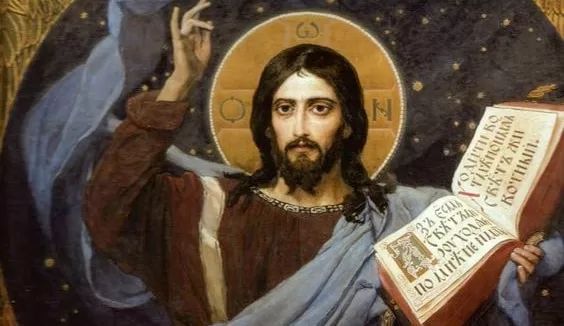
Why You Should Pray (Rosary) in Latin?
Latin is a Sacred Language The Latin language was consecrated at the Passion by its mystic inscription on the Cross. “From the first four centuries, no liturgy can be shown to be composed in any other language other than the three languages from the inscription on the Cross.” (Gihr) The Body of Christ was nailed to the Cross, the Altar of sacrifice, and the sacred languages bearing His title were nailed there on the Altar with Him. Our Lord Himself prayed in non-vernacular ancient Hebrew, used almost exclusively in rabbinical temple worship. “The Latin language…has been consecrated through constant use by the Apostolic see, the mother and teacher of all Churches.” – Pope St John XXIII, Veterum Sapientia, 1962. To consecrate by definition means “to make holy”; in a similar manner bread and wine are consecrated when they become the Body and Blood of Christ. “Latin was the language used by St. Peter when he first said Mass at Rome. It was the language in which that Prince of the Apostles drew up the Liturgy” (Fr. Michael Muller, C.SS.R., The Holy Sacrifice of the Mass). “The most ancient custom of the Church agrees…in the whole West there are no ancient liturgies except in Latin” (St Robert Bellarmine, On the Most Holy Sacrifice of the Mass). The Latin language was sanctified by the usage of 2000 years, and it was most closely interwoven with the primitive Roman Catholic liturgy (Gihr). Sacraments and sacramentals are made holy by the prayer of the priest such as the exorcizing and blessing of an object. The Latin language similarly is in itself as a language holy; it is sacred, and thereby brings great favor with God. Latin is the Principle Language of Catholic Prayer Prayer in Latin is a prayer in union with the rest of the Church in the same universal language she has prayed in since her inception. The Roman Catholic Church has always been directly connected with the Latin language in its very name as the “Latin Church.” From the early centuries, St Augustine, St Jerome, and other early Church fathers refer to her explicitly by this name. (StA, LII, LXXI; StJ, XLVI, LVIII) Latin is a Mystical Language “The Latin Language is both venerable and mysterious” (The Catechism Explained, FrS). By praying in a sacred language, Latin has a unique ability to enable greater focus in meditation and deeper levels of mystical prayer. “Latin points to the unfathomable and unspeakable depth of the mystery of the altar” (Gihr). “Latin…through its dignified character elicit[s] a profound sense of the Eucharistic Mystery” (Pope John Paul II, Dominicae Cenae, 1980). “[Latin is] the language of the angels.” (Pope Paul VI, General Audience, Nov 26, 1969). Latin creates a sense of sacred space and time to help focus on the sense of God’s otherness. The use of a distinguished language for prayer and worship instills the sense of awe and reverence that reminds us that we are worshiping and imploring the help of the Almighty transcendent God in a way entirely distinct from ordinary chatter with friends. Latin is the Prayer Language of the Saints When praying in Latin, you are praying in the same exact words in the same exact language that countless Saints have prayed throughout the ages and are being united with them through entering into this venerable tradition they handed down and preserved faithfully throughout the centuries. Many Saints have commented on their love for the Latin language and prayed both publicly and privately in this lingua sacra. The most famous Saints including St Augustine, St Benedict, St Patrick, Pope St Gregory the Great, St Thomas Aquinas, St Dominic, St Francis of Assisi, St Anthony of Padua, St Padre Pio, St John Vianney, St Frances de Sales, St Alphonsus Liguori, St Catherine of Sienna, and countless Saints throughout all ages of the Church all prayed in the same sacred Latin language. Latin has always been a part of private devotions. Because the liturgy is the source and summit of the faith and by its nature far surpasses any private devotion, the Church teaches that “devotions should…accord with the sacred liturgy, [be] derived from it, and lead people to it.” The Latin rite liturgy has been handed down and prayed in Latin from its earliest days throughout the centuries. Thus, private devotions deriving from the liturgy are most fitting to be prayed in that same sacred language. The Rosary, the greatest private devotion, was also originally prayed, taught, and handed down in Latin, and a regular practice of the Saints was to pray their devotions in their holy Church’s mother tongue. Read More in the Original Article

